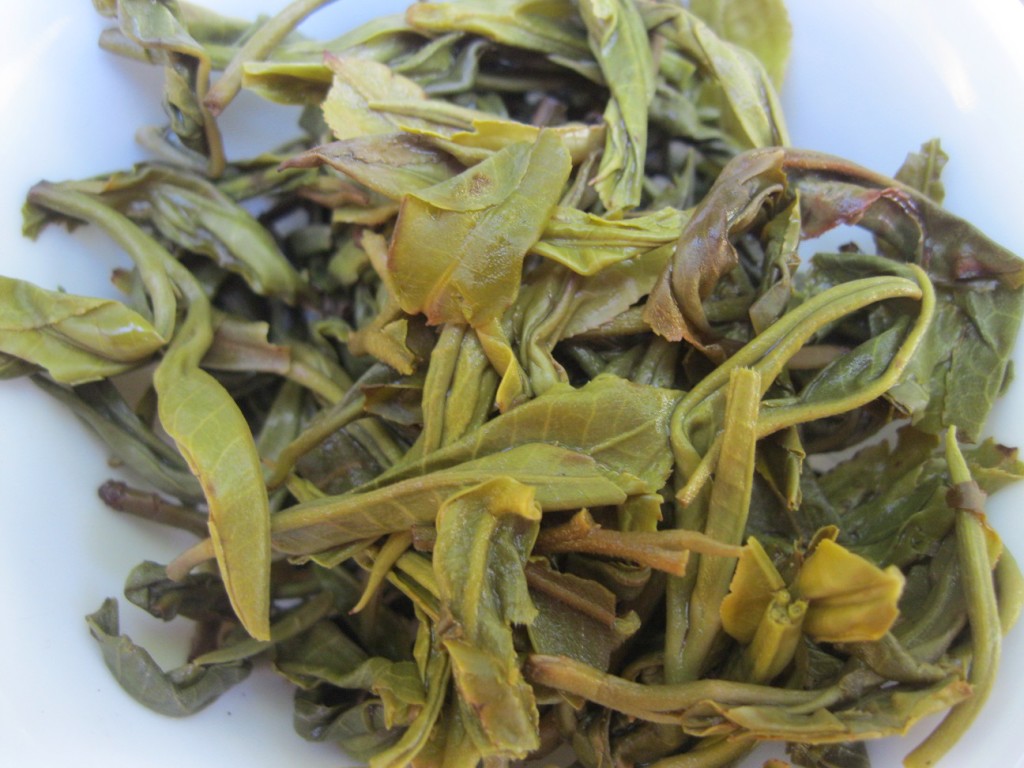Ice Island– A Pu erh Variety

Ice Island– A pu erh Variety
Since we’re on the topic of keeping cool, let’s take a look at the Pu erh called “Ice Island,” aka “Bing Dao,” a place that is neither icy nor an island. Located in Mengku township of Lincang Prefecture, in Xishuang Banna, Bing Dao has outstripped even Lao Banzhang in cost and popularity. Is the hype justified? That depends on you, but before rushing to judgement let’s take a look at Bing Dao if only for our own edification.
The Bing Dao craze began in the Korean, Taiwanese, and HK markets around ’09 before exploding in ’12. Interestingly, an article on the Puercn.com informs us that there is no uniform standard for the naming of Bing Dao Pu erh. As a result, what characterizes a proper Bing Dao depends on the tea buyer and brand. It is noted that this in part might be due to the relative remoteness of the area. There are also market-driven factors, where adjoining and village committees seek to cash in on the Bing Dao name. Notably, before ’03 there were no Bing Dao pu erhs, the material before then being sold under the name of Lincang or Mengku.
Despite its new-found attention, Bing Dao has been cultivated by the Dai/Tai tribe since the Ming Dynasty (1368-1644) and by the Bulang tribe before then. Undoubtedly, the trend toward greater specificity in the naming of terriors has contributed overall to the rise of Pu erh prices, a phenomenon supported by demand. However, this doesn’t answer why Bing Dao in particular has taken off. One wonders, what changes in East Asia over the past few years would culminate in a popularity of this sort? Could we deign to speculate that it actually says something of the zeitgeist?
Indulge your humble Pu erh Junky if you will… To my way of thinking the Yiwu teas seem to represent classical nostalgia, classical in the sense of the imperium, old money, so to speak. Mahei, Gedeng, and Mansong impress me with a certain mellowness, a floral nature that may take some getting accustomed to. Bulang, especially Lao Banzhang, epitomizes the struggle epoch of old school communism. In particular, bitterness is not a mark against the Pu erh’s quality, but embodies the bitterness of life itself.
Now we come to Bing Dao, of which your faithful Pu erh Junky has sampled but just a few. The Kebu Bing Dao is excellent. It hasn’t any hints of bitterness and the fruity notes are obvious. The days of struggle are behind us and the time for reaping the sweetness of life is upon us. This treasure doesn’t call for the subtlety of the imperial era. A child of four would enjoy this as much as the 40 something brought up on Kool-Aid.
Some of these items are presently on sale. I’ll probably have a sampler of some sort for you to develop your own thoughts in the near future.
